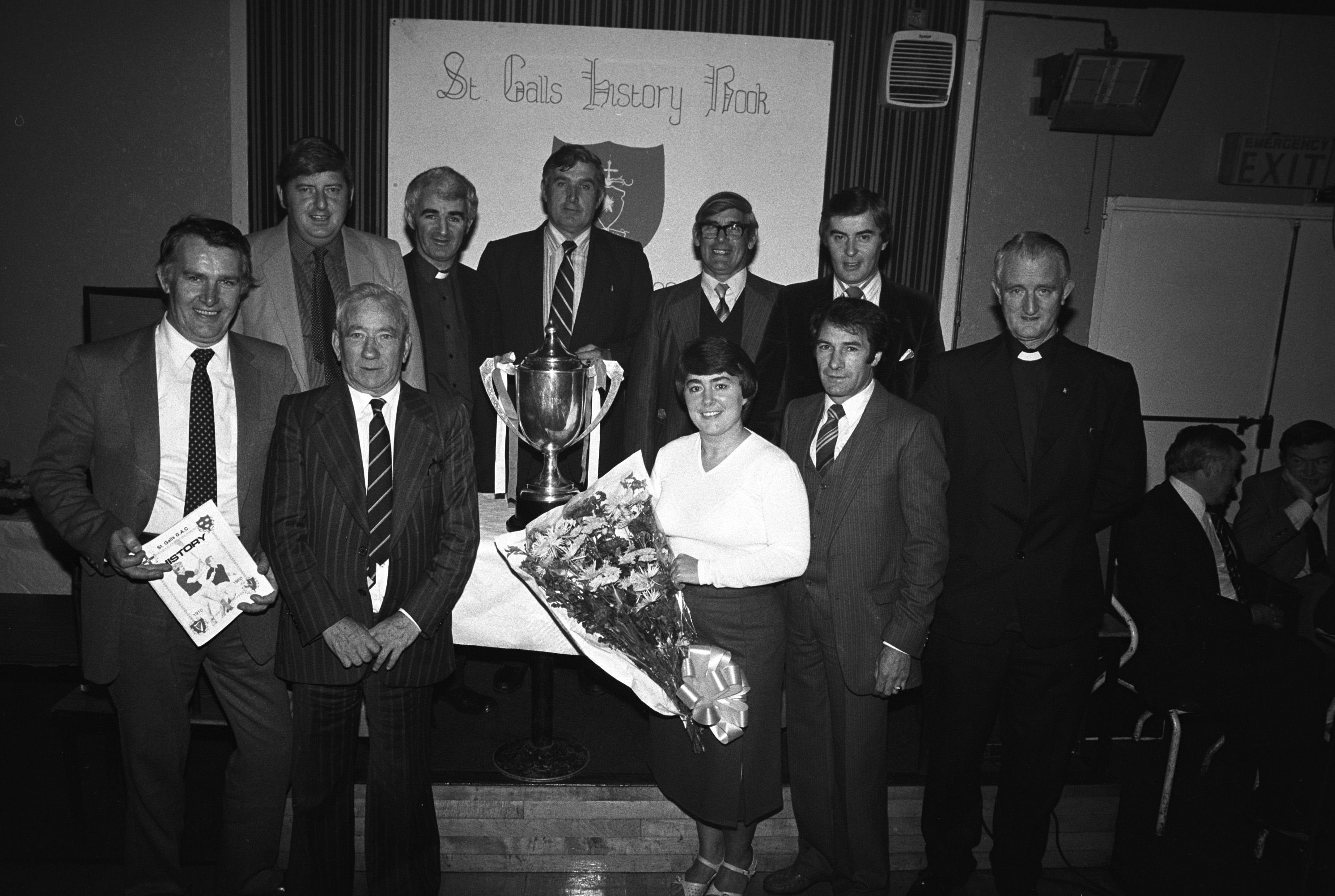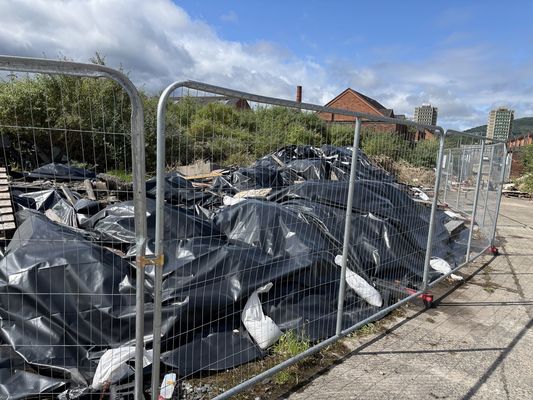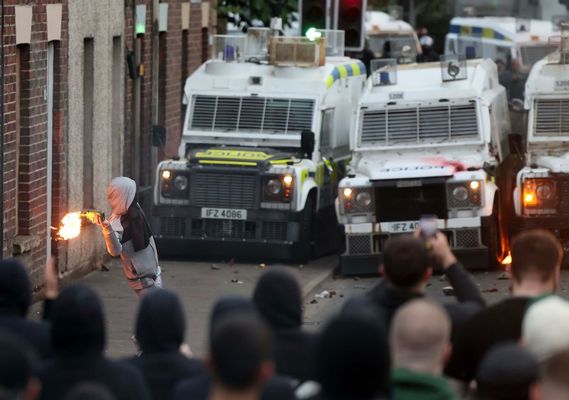WE look back at what was making the news headlines this week back in 1982
Belfast Horse and Pony Drivers, Traps and Gigs at the Hitchin’ Post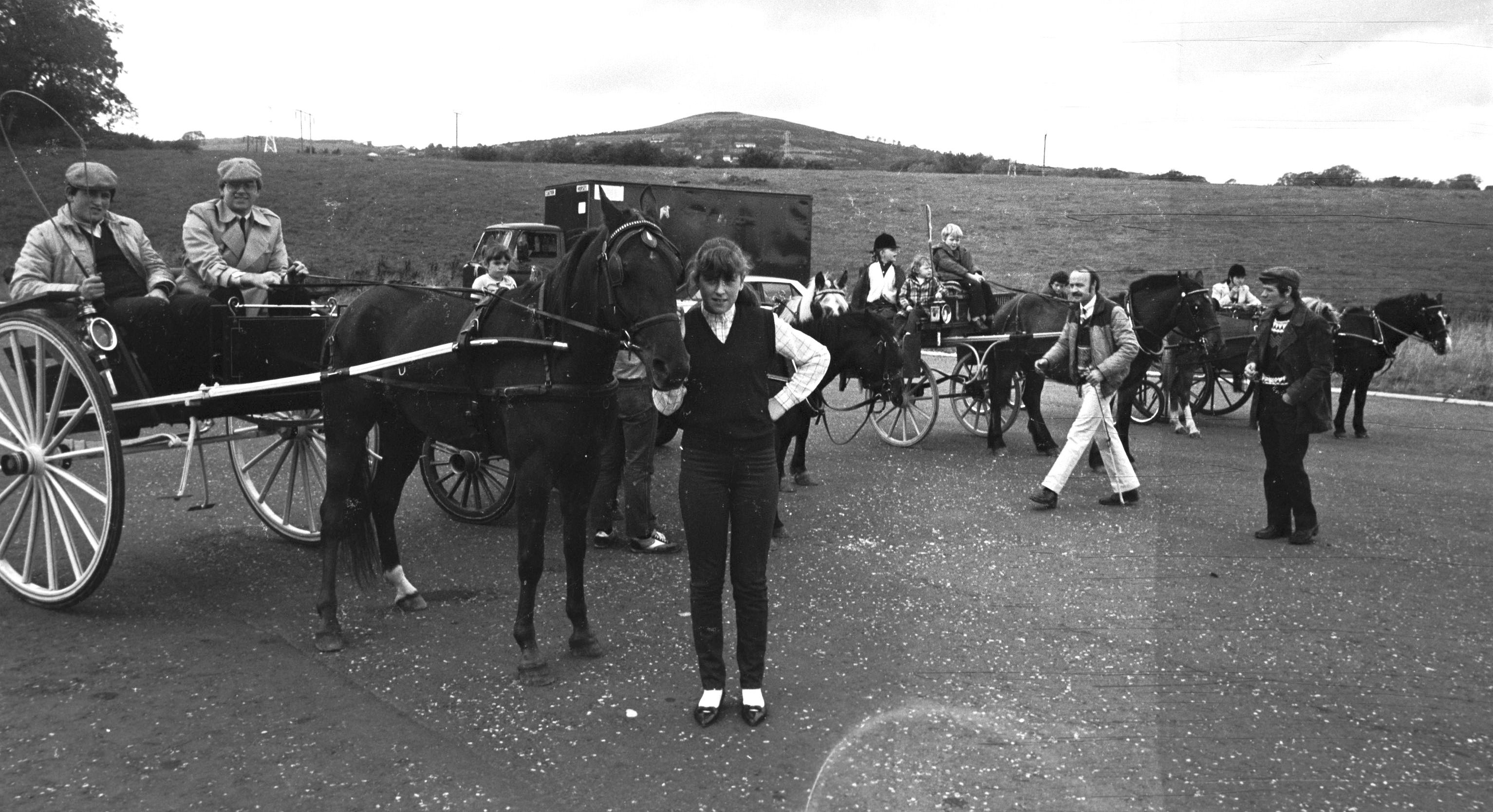
EDITORIAL: Goodbye Gerry Fitt
IT may just be an ironic twist of fate that both Dr Philbin and Gerry Fitt should have decided to bow out in the same month that Sinn Féin decided to contest the elections, but people will surely speculate that 1982 is fast becoming a watershed in local public life.
That Gerry Fitt was a character there can be no doubt, and it all depends on your political point of view as to what kind of a character he was. But anyone who was able to raise himself up from the obscure ranks of the unemployed in the back streets of Belfast, to become one of the most highly paid politicians in the Six Counties, must have had a highly inflated sense of his own importance and a keen eye for survival, so essential for advancement in the dubious profession of politics.
In his climb to the top, Gerry Fitt quickly realised the political capital to be gained from cultivating the grievances of an oppressed minority and identifying with their symbols and beliefs. Gerry wore an Easter Lily and marched in Republican parades, he spoke on platforms bedecked with the tricolour, and harangued the crowds from the backs of lorries at sectarian rallies from Glasgow Celtic Football Club.
At this particular point in his career, Fitt's name was synonymous with Catholic, Republican socialism, and it paid off handsomely. But his real making was the onset of the present troubles in 1969, when as an M.P. in Westminster he was projected into international importance as the spokesman for the minority. Many people felt that this would inevitably lead to his downfall because it would have taken a more intelligent person than Gerry to withstand the manouevres and vested interests of the British establishment in Westminster. This is exactly what happened. Gerry became more and more isolated from the people who made him, and more at one with his comrades in Westminster political circles, so much so that the British establishment were quite happy that he was articulating their point of view during the hunger strikes last year.
Proof came that he had lost whatever support he had among his own people, when he was defeated at the polls by a completely unknown person from an obscure political party. We have seen the end of Gerry Fitt M.P., a politician who failed to gain any concession for his people, and who ended up identifying himself completely with the enemies of Irish self-determination. His retirement will most likely be in his adopted country.
We wish him luck.
Cecelia Davey (94) was the oldest ex-pupil of St Anthony's Primary School, Upper Library Street, during a school reunion dinner in St Kevin's Hall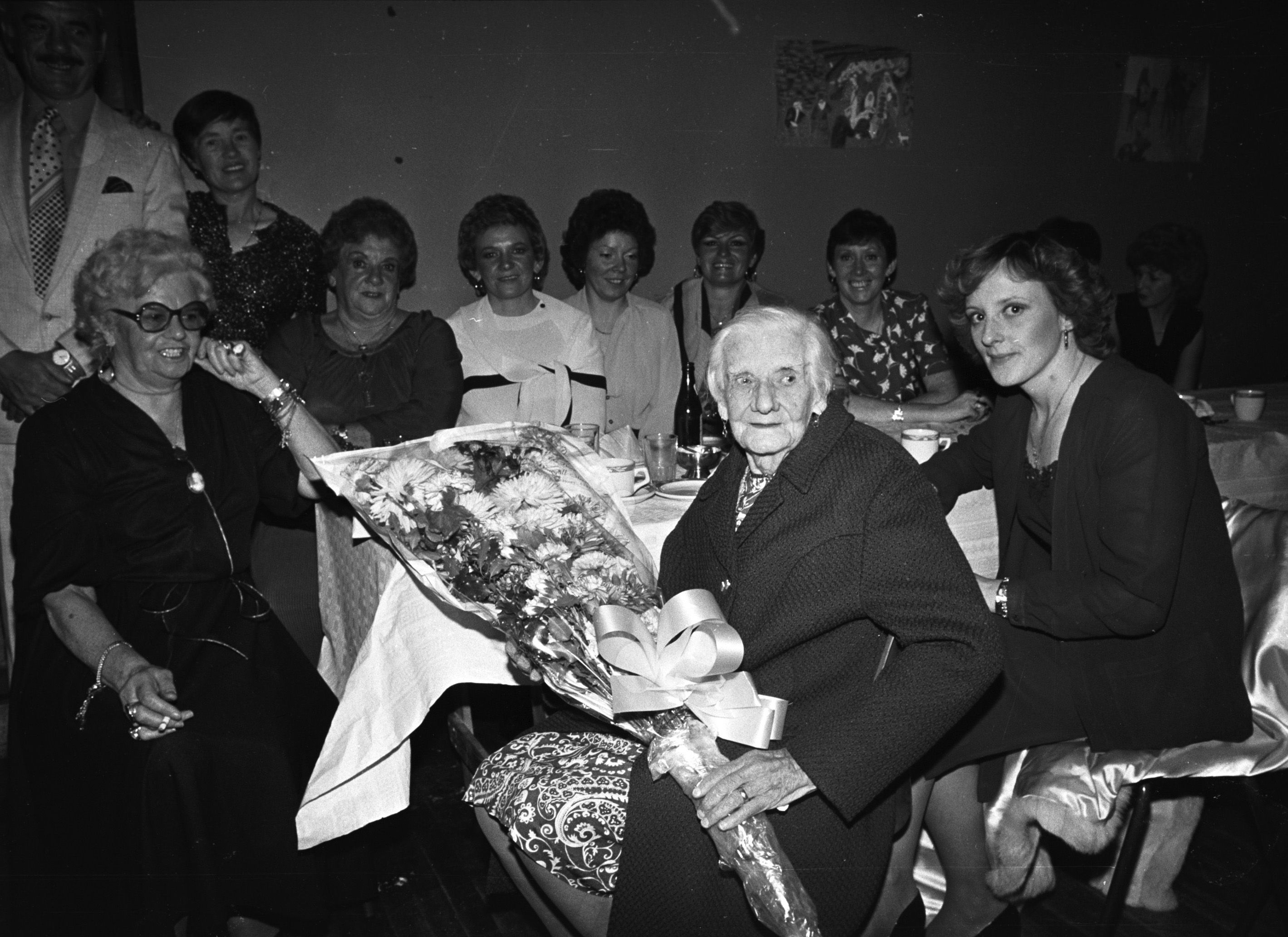
Injustice highlighted
RELATIVES of innocent children murdered by British soldiers in the North have travelled to England this week on behalf of the Silent Too Long Organisation. Rhona Toland, the aunt of 11-year-old Stephen McConomy, killed by a plastic bullet in April, will be accompanied by Jimmy Barrett, the father of Danny, who was shot dead last year outside his front door by a British soldier.
The DPP has ruled that no action be taken against the military personnel responsible for these two murders. To highlight this fact, and the existing situation whereby no British soldier or RUC man has ever been prosecuted for incidents connected with plastic bullet deaths, Mrs. Toland and Mr. Barrett will meet a range of influential groups in Britain. On Wednesday they met the National Council for Civil liberties and attended the Labour Party Conference where they had talks with Labour M.P.s. Today (Thursday) at 5 p.m. they will be staging a protest outside the residence of Margaret Thatcher In Downing Street. A group of London lawyers have arranged to meet the Silent Too Long representatives on Friday.
UNITED: Kathleen Stewart, Silent Too Long treasurer, with Jimmy Barrett and Rhona Toland depart for Downing Street and the Labour Party Conference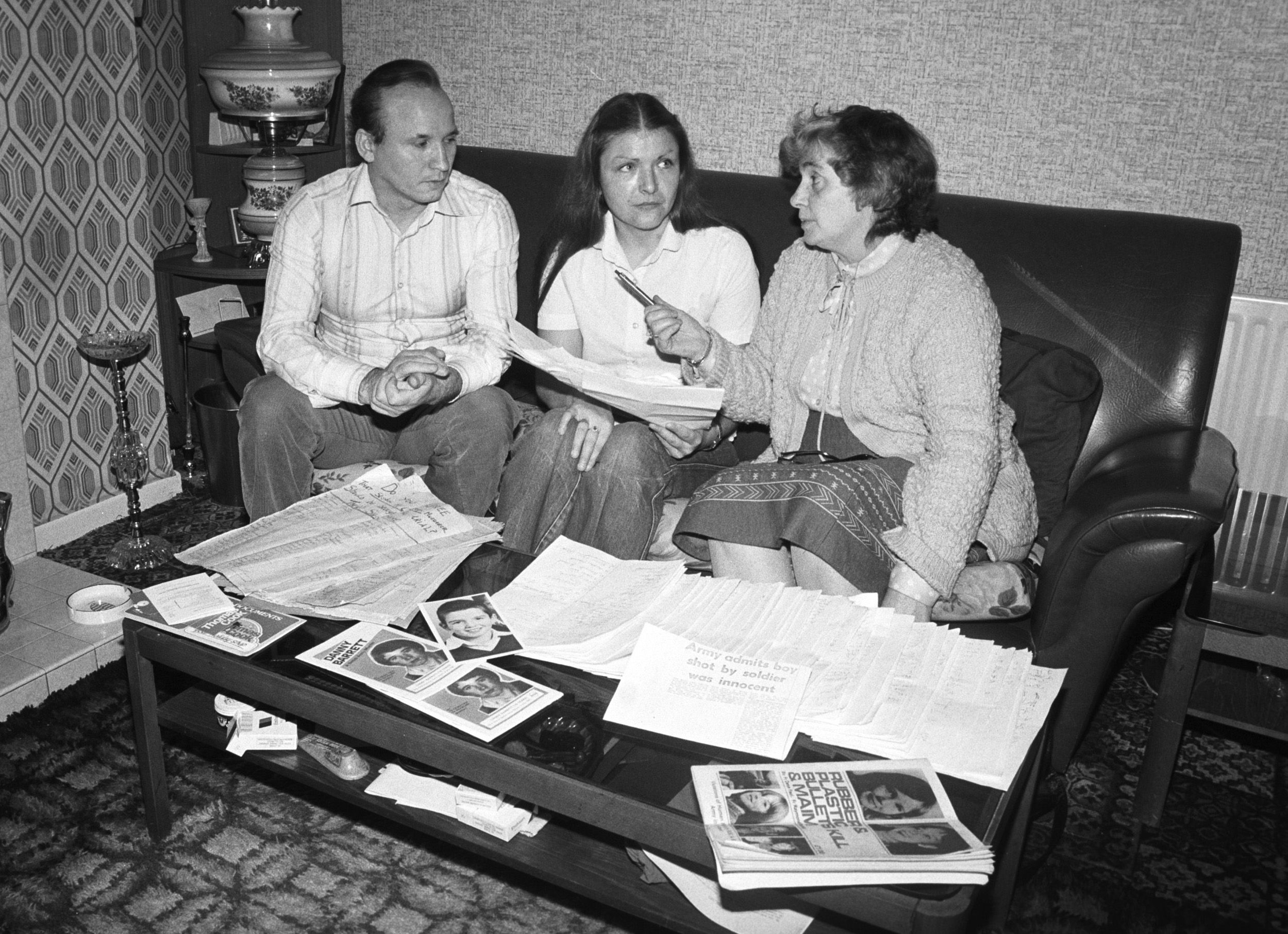
Demolition fears for Clondara Street
FEARS are growing in Clondara Street that local homes have been earmarked for demolition by the Housing Executive.
Concern first arose when a Housing Executive inspector during a routine look around in the street let it slip out that the houses were soon to be demolished. Since then rumours have abounded predicting all sorts of new developments involving the Executive, City Hall and the D.O.E. Locals are particularly concerned at the Executive’s inability to dismiss these rumours.
All the residents of Clondara Street are "completely opposed to any demolition." Many have only recently had expensive extensions built to their homes while a few have applications for building grants pending.
"We don't want our houses knocked down. They are in good condition and we are happy with them the way they are," said one local woman. "If the Executive wants to build new houses it can start in Moyard where people are crying out for redevelopment," added another.
The Housing Executive have stated that they are "looking at" the Clondara Street area but that "nothing has been decided." Said an Executive spokesman: "All housing plans are subject to periodic review when we consider them for a wide range of options. This is a common occurrence and Clondara Street "is only one of a number of areas we are looking at”.
Residents have probably become concerned because it is Housing Executive policy to stop processing improvement grants during review periods. This is usual practice until firm plans are made, he added. The Executive representative refused to rule out the possibility of demolition explaining that "it is not normal policy to comment on the possible outcome of reviews”.
Launch of St Gall's GAC history book with Liam Stewart, Brother Dominic, Hilary McDaniel, Gilly McIlhatton, Vincent Ward, Frank McDaniel, Joe McCartney, Patricia Davidson, Hugh Walsh and Brother Leopold